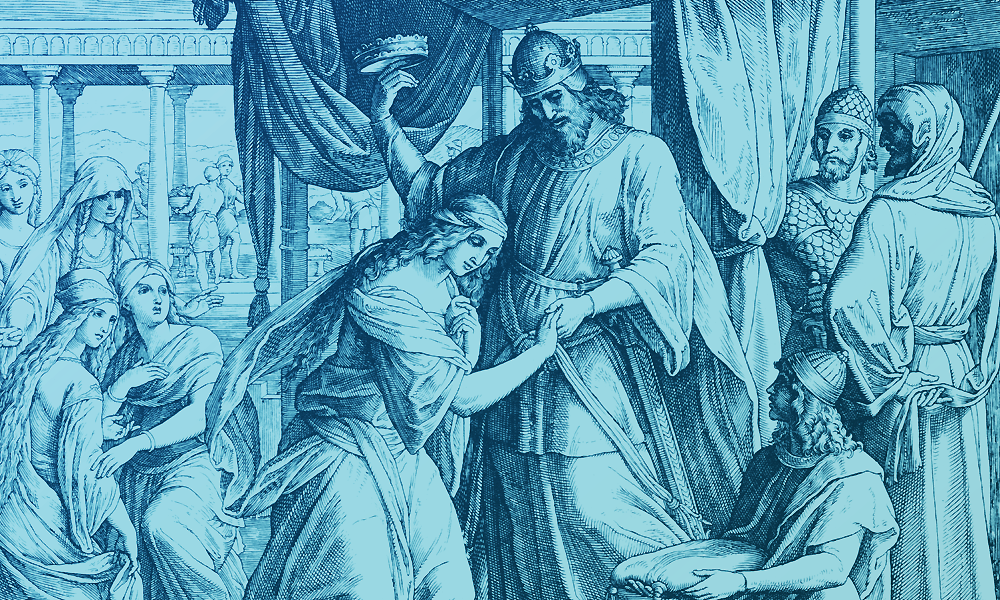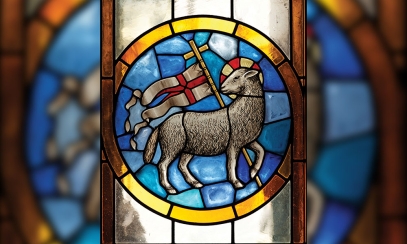
Esther
The Persian queen
The Persian queen
O God, whose power is over all, hear the voice of those in despair. Save us from the power of the wicked, and deliver me from my fear.” (Esther 4:30)
O God, whose power is over all, hear the voice of those in despair. Save us from the power of the wicked, and deliver me from my fear.” (Esther 4:30)
Although the story of Esther is full of numerous twists and turns, the spiritual points are clear. First, God alone saves, and deliverance comes unexpectedly, often when circumstances look most dire. Second, we have a part to play in the drama of salvation. We must courageously use our gifts and any influence we might possess to help our neighbors, even when the personal cost for doing so might be very high.
An unlikely queen
Esther’s family was exiled to Babylon after the fall of the Jewish kingdom to the Babylonian empire. After her parents both died, Esther was adopted by her relative, Mordecai. Although she was originally recruited to the court for her physical beauty, she ends up rising to the challenge to risk her life for the salvation of the Jewish people.
It all started with a banquet hosted by Ahasuerus, the Persian king. During the festivities, Ahasuerus sent for his queen, Vashti, to make an appearance. However, she refused to come. The king then deposed her and announced a search for a new queen. Mordecai entered Esther into the selection process, instructing her to not divulge her family or nationality, and she was chosen: “The king loved Esther more than all other women … she won his favor and good will.” (2:17)
From insult to genocide
Now Mordecai, who was also Jewish, had gained favor with Ahasuerus after he learned of and informed the king about an assassination plot. One version of this story in the Book of Esther attributes the actions to Mordecai alone. However, the other version suggests Mordecai got word to the king through Queen Esther. Regardless, Mordecai was appointed to serve at the king’s court as a reward.
The trouble began when Mordecai refused to prostrate himself before Haman, the king’s first minister, as was the custom. Insulted, Haman convinced Ahasuerus to issue a decree that would lead to the extermination of not only Mordecai but all the Jews. Desperate, Mordecai approached Esther and asked her to intercede with the king.
The choice
Up to this point, Esther had successfully concealed her family background and nationality. In return, she had enjoyed the privileges that came with being a queen, and therefore Mordecai’s request was no small ask. It was well-known that anyone who went to the king without being summoned, including the queen, would be put to death. In spite of this, Esther “fled to the Lord for refuge” (C-12) and prayed: “My Lord, you alone are our King. Help me, who am alone and have no help but you, for I am taking my life in my hand.” On the third day of her prayers, she summoned the courage to reveal her true identity to the king in an attempt to save her people. Over the course of three banquets with the king, Esther managed to gain the king’s clemency for the Jewish people. She also confronted Haman directly, which resulted in the king executing him and naming Mordecai as his new first minister.
In the end, the story of Esther is a tale of faith and courage. Esther knew God alone could protect her and her people. She also knew she had to risk her own personal privilege and safety to do her part.
Did You Know?
The deliverance of the Jewish people as recounted in the Book of Esther is commemorated on the Jewish holiday of Purim. Esther and Mordecai declared a holiday after the decree against their people had been lifted. It is written in the Book of Esther: “They were to observe these days with joyful banqueting, sending food to one another and gifts to the poor.” (9:22)
Doug Culp is the chancellor for the Catholic Diocese of Lexington.



